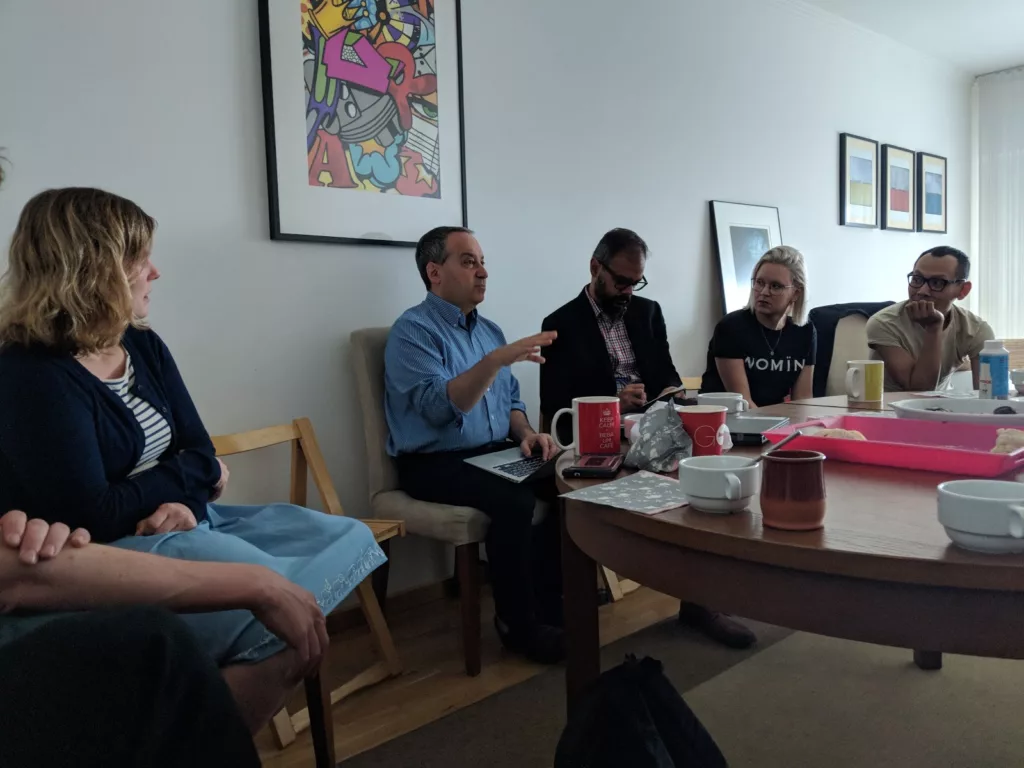
Why ‘civic tech’?
E-democracy had its day, but as field-builder Tom Steinberg wrote back in 2014, civic tech won the name game. And we define civic tech simply as the use of technology for the public good. It includes but is not limited to efforts to enable interaction between people and their governments or improve government service delivery (i.e. govtech). Civic tech is tech that empowers people to have more agency and more of a role in the decisions that affect their lives, as well as tech that helps address public challenges and needs. We believe that anyone, not just people with advanced degrees, can both use and advocate for the use of tech for the public good. We also recognize, as noted by the 2018 #MoreThanCode report, that others using tech for the public good may prefer to refer to their work as “community tech” or “tech for good,” among other terms.
Free
The Civic Tech Field Guide has always been and will always be free of charge.
Open
We collect, curate, and produce information to help grow the field of civic tech in productive directions. For this reason, the entire collection is Creative Commons licensed. We ask only that you attribute the Field Guide with a link back to the site in a visible location, and that you use it for non-commercial purposes only. (Creative Commons BY NC SA 4.0).
Our data is available via the WordPress API and bulk export on request. Please simply get in touch with us if you’d like to use it.
Too cheap to fail
We have seen too many similar efforts invest large amounts of resources into developing a flashy custom platform, and then run out of budget and go offline a few years later. We chose to build the Civic Tech Field Guide on open source technologies like WordPress. Our goal is to stay around for years to come so that people can continue benefiting from the contents of the Guide.
Crowdsourced
The success of the Guide depends on the civic tech community contributing their knowledge back into it. We welcome contributions, be they individual project submisssions, curating a section, or sharing of entire datasets.
Global
We are based in New York and Berlin, but we offer global coverage of the field of civic tech. Wherever possible we retain projects’ original language in their profiles, and offer translation tools on every entry. We believe there is too much to be learned from one another to artificially limit our scope to one country or region.
Specific
We intentionally catalog civic tech at the project level. There are many nonprofit directories. Rather than rebuild these, our goal is to help people discover specific projects and products that will be useful as resources, tools, partners, inspiration, or precedents.
Inclusive
Wherever possible, we collect more project examples, rather than fewer. We could limit this collection to open source tools only, for example, or only free tools. But if you’re someone looking at related products or services, like SMS tools, for example, you’d probably see all of the relevant competitors, rather than a small subset.
Lessons learned
It’s not always popular, but we believe it’s worth tracking the projects that are no longer with us. There are many reasons projects are shut down, but together with the Internet Archive, we believe future generations of civic technologists deserve to know what they were, and ideally, why they failed. This is why we advocate for a postmortem culture in civic tech.
